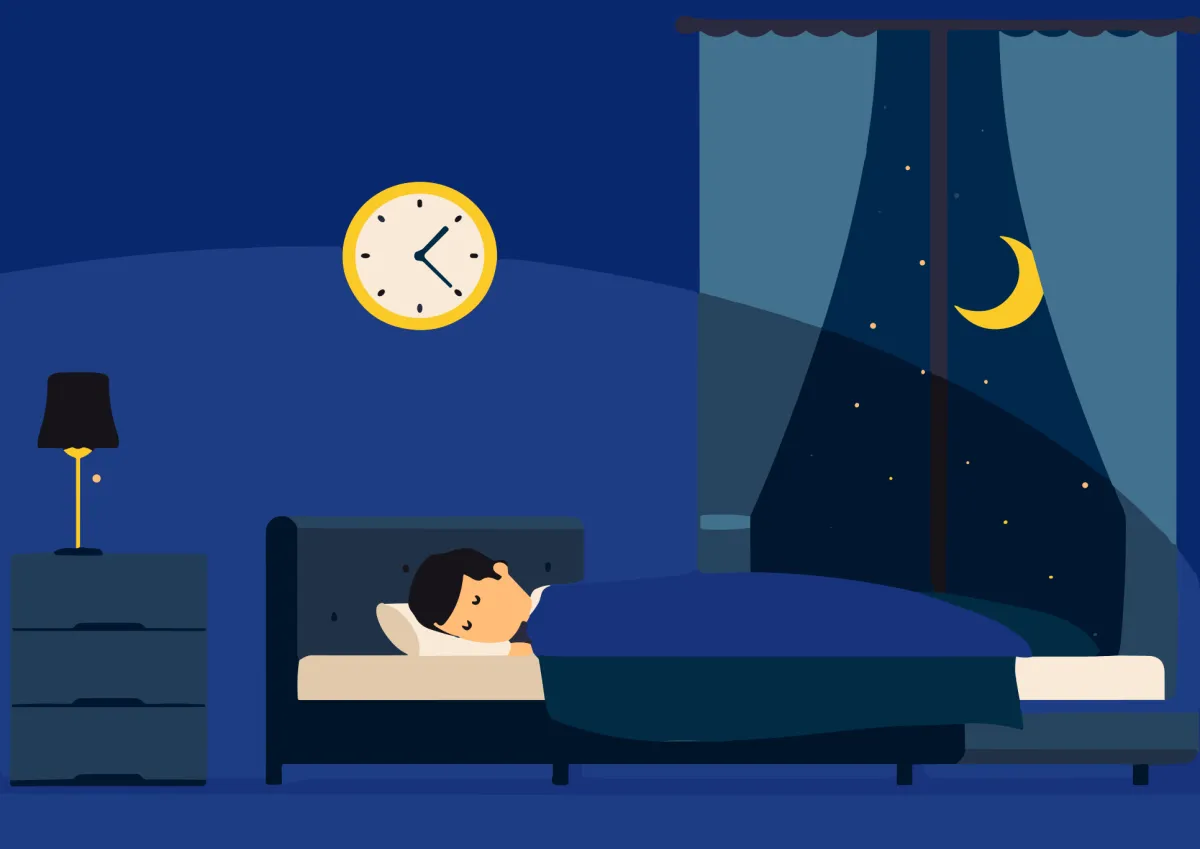SMASH IRON FITNESS BLOG

What Is the Relationship Between Exercise and Sleep?
Getting a good night’s sleep and staying physically active are two key pillars of a healthy lifestyle. While we often think of exercise as a way to improve fitness and boost energy levels, it also plays a crucial role in sleep quality. The relationship between exercise and sleep is deeply interconnected—regular physical activity helps people fall asleep faster, improves sleep duration, and enhances sleep quality. On the other hand, sleep affects exercise performance, recovery, and overall motivation to stay active.
In this article, we’ll explore how exercise impacts sleep, the best types of workouts for better rest, and how to time physical activity to maximize its benefits.
How Exercise Improves Sleep
1. Helps You Fall Asleep Faster
Struggling with tossing and turning at night? Regular exercise can help reduce the time it takes to fall asleep. Physical activity increases body temperature, and as it cools down after exercise, it signals to the body that it’s time to rest. This natural process mimics the body’s internal sleep-wake cycle, helping you drift off more easily.
2. Enhances Sleep Quality
Exercise promotes deeper, more restorative sleep. It increases the amount of time spent in slow-wave sleep (deep sleep), which is essential for physical recovery, immune function, and memory consolidation. People who engage in moderate to vigorous activity tend to experience fewer nighttime awakenings and better overall sleep quality.
3. Reduces Stress and Anxiety
Stress and anxiety are common culprits behind poor sleep. Physical activity triggers the release of endorphins—natural mood boosters that reduce stress levels. It also lowers cortisol, the hormone associated with stress, promoting a state of relaxation that makes it easier to unwind before bedtime.
4. Regulates Your Circadian Rhythm
Exercise helps synchronize your internal clock, also known as the circadian rhythm. When you’re exposed to natural light during outdoor workouts, your body receives signals that regulate sleep-wake cycles. Regular physical activity reinforces a consistent routine, making it easier to wake up and fall asleep at the same time each day.
5. Reduces the Risk of Sleep Disorders
People who are physically active are less likely to suffer from sleep disorders like insomnia and sleep apnea. Exercise helps regulate breathing patterns, reduces inflammation, and supports healthy weight management—all of which contribute to better sleep.
How Sleep Affects Exercise Performance
The relationship between exercise and sleep is a two-way street. Just as physical activity improves sleep, getting enough rest enhances exercise performance and recovery.
1. Increases Energy and Endurance
When you sleep well, your body restores energy levels, replenishes glycogen stores, and repairs muscle tissue. This leads to improved endurance, strength, and overall athletic performance.
2. Supports Muscle Recovery and Growth
During deep sleep, the body releases growth hormones that repair and build muscle tissue. Poor sleep can hinder muscle recovery, increase soreness, and reduce strength gains.
3. Boosts Motivation and Focus
Sleep deprivation affects cognitive function, reaction time, and motivation. When you don’t get enough rest, it becomes harder to stay consistent with workouts and push yourself during training.
Best Types of Exercise for Better Sleep
Not all workouts have the same effect on sleep. Some exercises are more effective at promoting relaxation, while others might energize you too much before bedtime.
1. Aerobic (Cardio) Exercise
Cardio workouts like walking, jogging, cycling, and swimming are some of the best activities for improving sleep. These exercises help reduce stress, regulate mood, and promote deeper sleep.
2. Strength Training
Weightlifting and resistance exercises improve overall fitness and support sleep by reducing anxiety and stabilizing mood. Strength training also contributes to metabolic balance, which can help prevent nighttime blood sugar fluctuations that disrupt sleep.
3. Yoga and Stretching
Yoga, meditation, and gentle stretching help activate the parasympathetic nervous system, which promotes relaxation. These activities are ideal for winding down before bed, reducing tension, and preparing the body for sleep.
When Should You Exercise for Better Sleep?
While regular exercise improves sleep, timing matters. The best time to work out depends on your body’s natural rhythm and lifestyle.
Morning Workouts
Exercising in the morning exposes you to natural daylight, reinforcing your circadian rhythm.
Morning workouts boost energy and improve mood throughout the day.
Helps regulate cortisol levels, reducing stress-related sleep disruptions.
Afternoon Workouts
Strength and endurance levels are higher in the afternoon, leading to better workout performance.
Body temperature is naturally elevated, making exercise feel easier.
Can be a great stress reliever after work or school.
Evening Workouts (Use Caution)
Low-intensity activities like yoga and stretching are great for relaxation before bed.
High-intensity workouts too close to bedtime can increase alertness and make it harder to fall asleep.
If you prefer evening exercise, finish workouts at least 2–3 hours before bedtime to allow your body to cool down.
Tips for Maximizing Exercise and Sleep Benefits
Be Consistent – Regular physical activity improves sleep over time. Aim for at least 150 minutes of moderate exercise per week for optimal benefits.
Get Sunlight Exposure – Exercising outdoors helps regulate your body’s sleep-wake cycle.
Avoid Caffeine and Stimulants Before Bed – Limit pre-workout supplements and caffeine intake in the evening.
Create a Relaxing Evening Routine – Wind down with light stretching, meditation, or deep breathing.
Listen to Your Body – If intense exercise disrupts your sleep, try shifting workouts earlier in the day.
Final Thoughts
Exercise and sleep go hand in hand—physical activity helps you fall asleep faster, improves sleep quality, and reduces stress, while good sleep enhances athletic performance and recovery. Whether you prefer cardio, strength training, or yoga, incorporating movement into your daily routine will lead to better sleep and overall health.
By making both exercise and sleep priorities, you’ll feel more energized, focused, and ready to take on each day.





